Laica Blog
Microplastics – How to Stop the Invisible Enemy
Microplastics are undoubtedly one of the most frequently mentioned environmental threats.
In recent years, there have been many global debates around the topic, which is also a sign that the world's population is becoming more and more aware of the issue and very often tries to be proactive in their behaviour as well. Think, for example, of how much our habits have changed in recent years, whether at the supermarket or grocery store, from personal bags to pasta, cereal and detergent dispensers.
As we have already mentioned on the Laica Blog, microplastics are tiny fragments that tend to be invisible. According to ARPA, microplastics are defined as all fragments of this material that are between 5 mm and 330 µm in size.
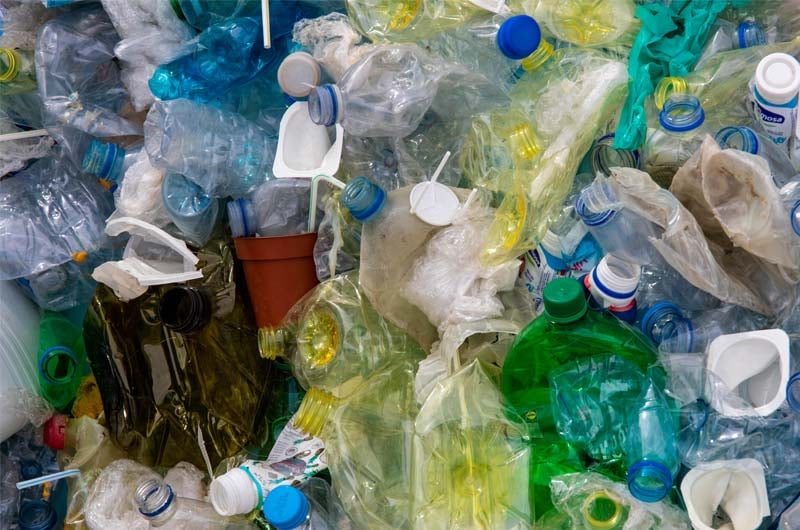
Various environmental protection and preservation agencies have found these plastic micro-bodies in a variety of environments through extensive research. To give you an idea of how globally widespread this problem is, traces of microplastics have even been found by some studies in common table salt, in the ice of the Stelvio National Park and along the beaches of the Tuscan coastline.
We have previously discussed the prevalence of plastic waste and the potential danger of accidentally absorbing it. However, scientific studies have yet to give us an understanding of the overall impact of ingested microplastics on our bodies.
Rather than merely trying to capture diffused microplastics, it would be better to reduce the waste at source.
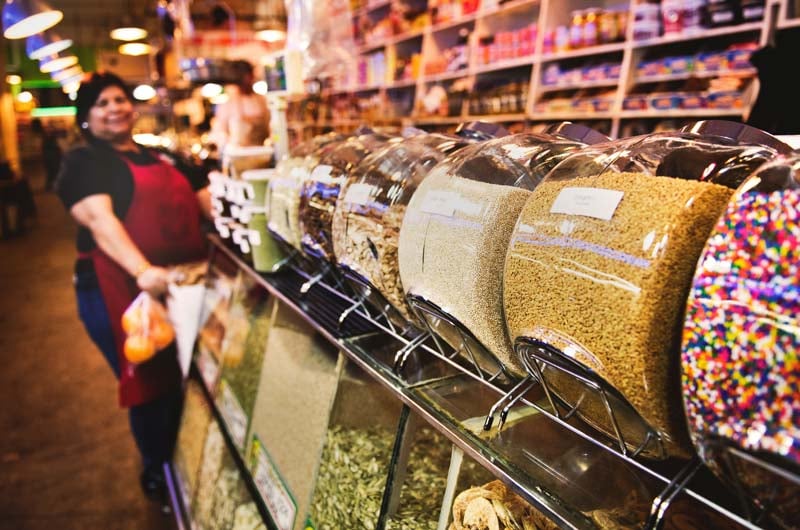
We'll deal with the options for trapping microplastics in tap water in the following section, but we really should address another option we have: reducing our use of single-use plastics in our daily lives.
Small daily gestures can really make a big difference, and if amplified on a global scale, they can lead to a major reduction in the amount of plastic produced, used and released into the environment as waste.
Studies and reports concur in pointing out that a large proportion of the microplastics found in their research can be traced back to the number of single-use plastic bottles used every year and not disposed of properly. Keeping ourselves hydrated on a daily basis using water in disposable plastic bottles is still a widespread habit, especially in Italy.
Deciding, however, to drink tap water at home (or in the office) is an excellent habit to introduce into your daily routine, especially knowing that in Europe, and especially in our country, the average quality of mains water is excellent. Ditching the practice of drinking water from disposable plastic bottles and embracing the good and convenient habit of drinking tap water is a very important step towards respecting the environment.
The same can be said for plastic plates and tableware. Recycling these products is very difficult and complex and often results in their ending up polluting the environment in which we live. Nowadays, more and more bars and clubs are choosing to be eco-friendly by eliminating plastic cups and straws. Such good practices can also be easily adopted during family picnics or parties by opting for tableware made of compostable materials like bamboo, for example.
Two other 'plastic products' that are often found in rubbish are classic plastic shopping bags and washing-up liquid bottles. As we have said, habits in our supermarkets have changed a lot in recent years, both on the part of the organisations and the users.
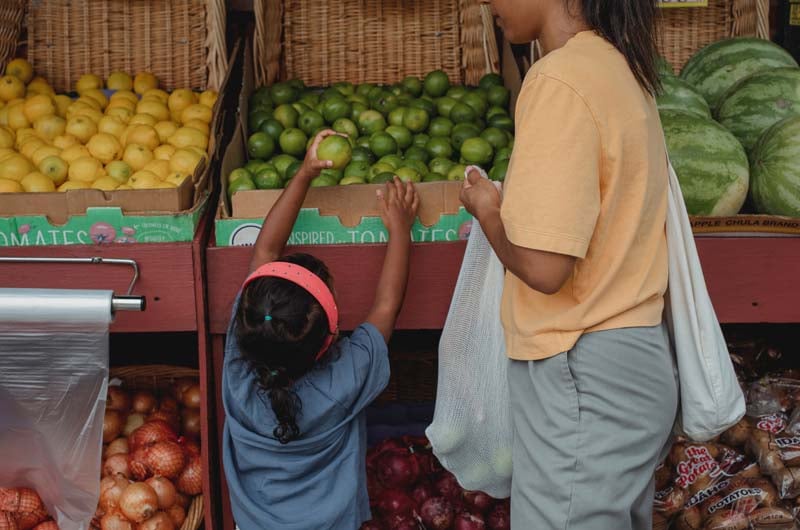
True, more and more people are choosing to use their own shopping bags to carry the food they buy, but these are still too few. Plastic bags provided by supermarkets are still used a great deal, and the worldwide volume means that these products are some of the most negative contributors to single-use plastic pollution. Getting a personal shopping bag to carry with us at all times is a simple gesture, but one that can also help us with those 'sudden' purchases that often end up in plastic bags for convenience.
The same applies to detergents – they cannot be eliminated from our daily routine, of course, as they are necessary and useful. What we can do is choose to refill if the empty bottle can be refilled. By doing so, we are reducing pollution from single-use plastics, but not only that – we are also saving money!
These are just some of the behaviours we can start to introduce into our everyday lives in order to reduce our use of plastic (and thus the production of microplastics). Other significant habits may be:
- choosing quality clothes and garments as much as possible – the cost may be higher, it's true, but in this sector, quality is synonymous with a controlled supply chain that is also mindful of microplastics;
- when using our washing machine, it's better to do fewer and full loads, perhaps using a bag to prevent plastic fragments from being released into the wastewater;
- using bicycles, public transport or car-sharing as much as possible when moving around the city and out of town, as car tyre wear is one of the major causes of microplastics.
How to block plastic micro-fragments
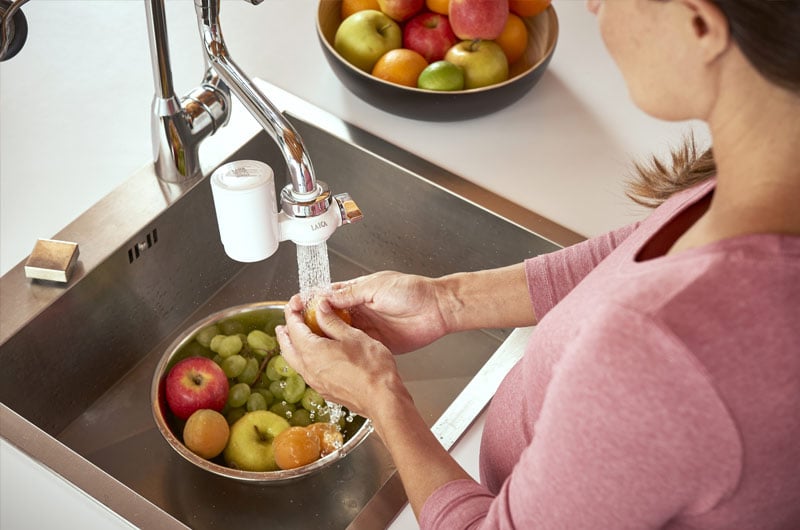
As shown, it's very easy and likely for microplastics to end up on our tables through the food we eat and the water we drink. On the market today, we can find products that block microplastics by filtering domestic tap water.
The filters that are currently on the market and readily available are very often also easy to use. We can find tap filters specifically designed to reduce microplastics by blocking them before the water comes out of the tap. These filters have been tested in independent laboratories and proven to reduce suspended particles as small as 0.1 µm that may be present in tap water. So, whenever you want, simply turn on your kitchen tap and fill a glass with great-tasting water that's free from any undesirable substances that could be present, such as microplastics.
You can also find the same technology available for jugs. In addition to microplastics, these types of filters usually block other undesirable substances, such as chlorine, sand and rust, herbicides and pesticides and other suspended fragments.
Thanks to these types of appliances, drinking great, safe, filtered water, free from undesirable substances, has been made easy and convenient.





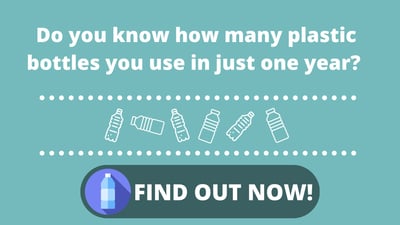
It's your turn, leave your comment!
Get the latest from the Laica blog